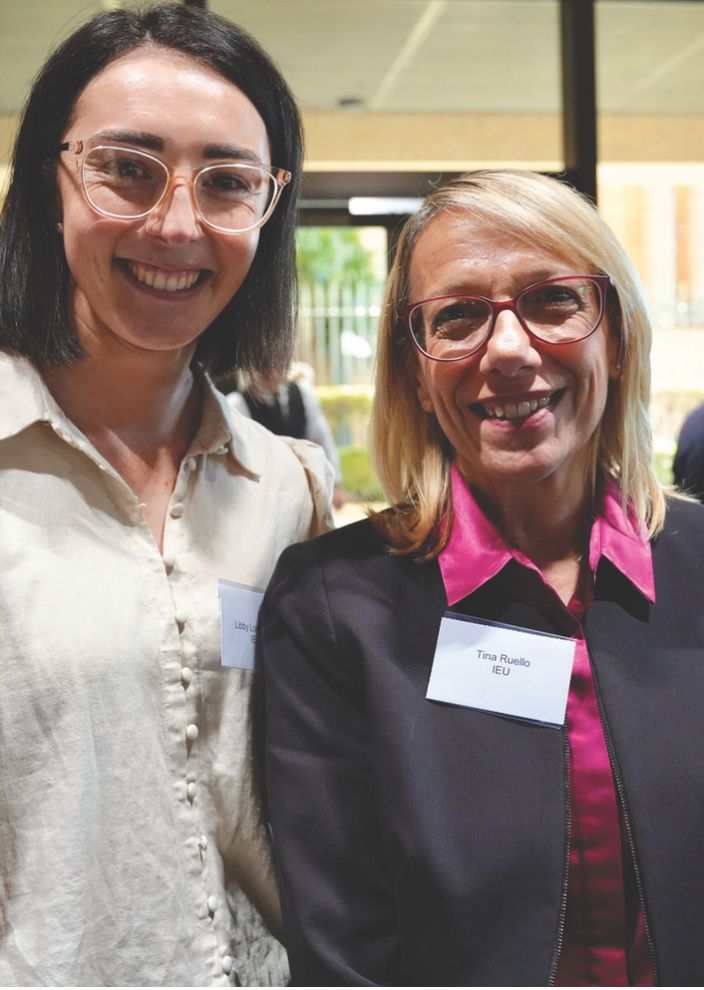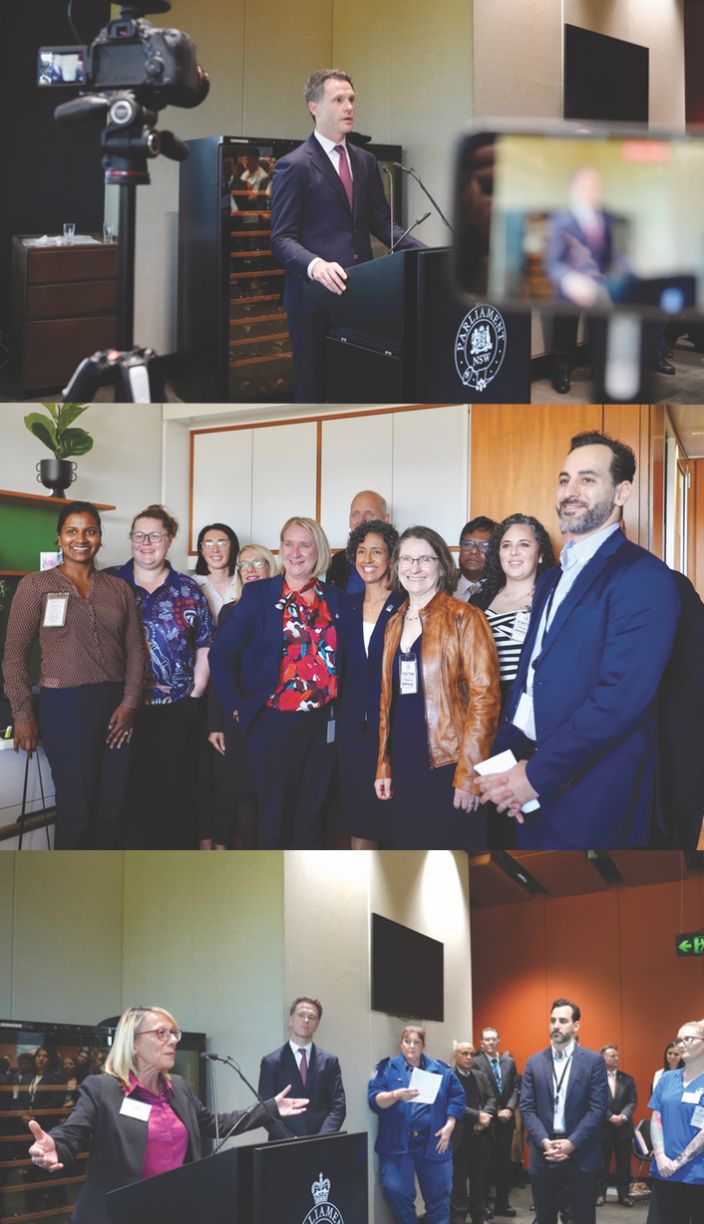
IEU Deputy President Libby Lockwood and President Tina Ruello at NSW Parliament House.
Industrial Relations Minister Sophie Cotsis welcomed the union delegation, commenting on the end of a “challenging and devastating 12 years” which had seen the introduction of the public sector pay cap and changes to Workers Compensation laws.
“My door as the new Industrial Relations and Work Health and Safety Minister is open to all of you,” Cotsis said.
“Don’t be afraid to tell your stories. We need to hear what’s happening on the ground,” she said.
“I stand with you, and I want to see a collaboration between government, workers, and industry, and we want to make sure that in work, health and safety, we improve standards.”
Lockwood told Bob Nanva MLC that the teacher shortage was crippling schools.
“Teachers are burnt out. Workingover 60 hours a week, much of which is unpaid work after school. Release time isn’t enough. The admin burden is crippling,” Lockwood said.
“In Western Sydney or remote areas like Mungindi, Walgett, Wee Waa, they cannot get teachers because the pay is not good enough – that’s what’s going to bring people into the profession and help retain them,” she said.
Ruello said teachers were essential but not valued. “This is the professional insult that we have to deal with.
“We are glad that you are in power because we know that change is on its way and that as a profession we’re going to be recognised, valued, and paid accordingly. We need to attract the best and the brightest of our high school students to our profession and build NSW to what it should be.”
Speaking in Parliament the previous day, Education Minister Car acknowledged teachers were leaving the profession “in droves” due to crippling workloads.
“I can reassure the teachers and parents of NSW that, finally, after more than a decade, they have a government that values their work, acts on that value and respects them – and it is not just words. We are backing it up with action and we are only just getting started to support the teachers that we need to teach our children.”
Lockwood thanked Minister Car for her efforts to change the negative narrative around the teaching profession.
“Prue is working hard to change the narrative around the teaching profession. The negativity that is put out there constantly about teachers and our profession and what we do and allegedly don’t do – changing the narrative is so important.”
Advocating for early childhood teachers
Ruello said the situation was even worse in the early childhood sector. Discussing the situation with Greens MPs, she said, “Teacher shortages in ECEC are dire. Hopefully the government has some sort of solution or some impetus in resourcing preschools.
“In some centres members are under the modern award, which is not helpful at all. If there could be any sort of assistance or help to encourage them to establish enterprise agreements,” Ruello said.
Matthews said in the early learning space some pay rates are comparable to schools, but probably two out of three were paying well under that rate.
“We’ll certainly be having discussions with the Labor government about an approach like Victoria, where not-for-profits get more funding if they have an enterprise agreement which has higher rates of pay. There are many services in Victoria under that agreement,” Matthews said.
“We’d really like to see support from the NSW Government in that preschool sector for trying to get the wages up via an agreement. It’s also happening in Queensland.”
Statement from Prue Car






































































































































